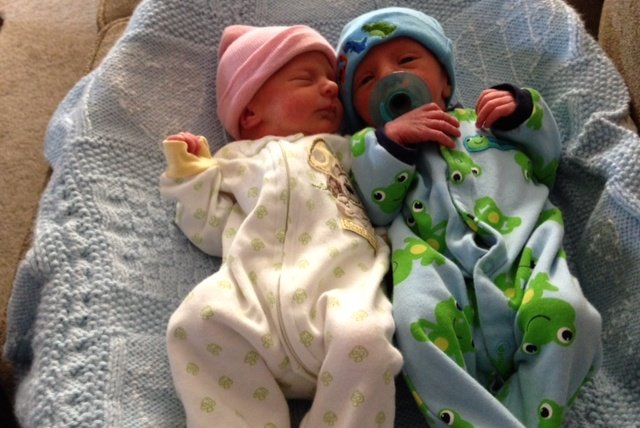By Jen Wittes
We were called in to drag a new mama from the darkest, slipperiest, muddiest hole of postpartum depression I have ever witnessed firsthand. To protect her privacy, I will rename her Michelle.
Michelle literally could not pick her head up from the kitchen counter. She did not have the energy to care for her daughter, for herself, or for her relationship with her husband. She did not have enough energy to hang on to one clear thought.
Michelle wanted to care for her child. With everything, she wanted it. She was just so depleted–physically, emotionally, mentally, hormonally. She felt pain and fatigue, to her core, at even the thought of lifting her beautiful baby for a few short minutes.
Michelle was disturbed by the broken mother-daughter bond–which was there immediately after birth, but slipped away two weeks later when she became dangerously exhausted.
Whenever Michelle went to kiss her child, she did so with tightly clenched lips–and she knew it. She often said things like, “I wish I could be a better mother to you.”
About a week before I met Michelle, her psychiatrist suggested that she not be left alone. This was an overly protective measure that confused, frightened, and embarrassed the new mother. It further cemented her belief that she was failing miserably.
My first visit with Michelle was a marathon twelve hour shift–a long, hard day in which I was able to force baby steps towards recovery and invite little glimpses of sunshine back into her family’s life.
First, I went through my basics–a nap for mom, a tall glass of water, an opportunity for mild emotional expression.
Nutrition is crucial in the postpartum period, especially for those suffering from mood disorders. Michelle had lost her appetite and in particular, her taste for anything with strong flavor. She felt frustrated when friends and family would ask her what she wanted to eat. Although she knew they were trying to help, she didn’t have the will to produce even a simple answer.
Traditionally, Michelle was a healthy eater, so I asked her if she would like me to go to the local co-op to pick up some basic supplies. She seemed very grateful not come up with a list of specifics.
I tucked Michelle and her baby in for a nap and told her that I trusted her to be alone with her child. This came as a relief to Michelle and she brightened a bit to have at least some of the stigma lifted. I called Michelle’s mother to make sure this was indeed a sound decision and we both agreed that it was fine during a nap, just for a quick trip to the market. Michelle was ready for that level of responsibility.
I selected nutritious, high-energy foods that were not heavily spiced or flavored. Honey Greek Yogurt, smoothie supplies, almonds, beans, easy heat and serve organic soups, avocado. Michelle was thrilled. Finally: the food she wanted but couldn’t ask for. That it was just there, ready to eat, when she felt up to it, brought back a small appetite. Of course, the calories gave her a spurt of energy and she spontaneously asked me if we could take a walk!
While preparing for the walk, I asked Michelle if she would like to wear the baby in my Moby wrap. She said that she still didn’t feel ready, but would greatly appreciate me wearing the baby. This ended up being a wonderful solution. Baby got some semi-skin-on-skin/heartbeat time, while hearing her mother’s voice. Michelle got to look upon her child and talk to her, without the physical and emotional burden she usually felt as a result of her severe depression. The fresh air and movement also helped, and Michelle asked me, “Why don’t I take walks every day? This feels so good.” I told her that a daily walk sounded like a great idea. I later wrote her a reminder note. In the postpartum haze, new mothers need actual reminders about what works and what doesn’t. They have tunnel vision and new worry, sleep deprivation and a whole heap of physical and hormonal changes. They literally need reminders to eat, sleep, and shower; some women even need a reminder to cry.
When we reached the end of the street, Michelle eyes began to tear up slightly. This was actually a good thing, as her depression had deadened her. Throughout this first day with her, she expressed frustration that she couldn’t cry. I took a risk and pushed Michelle a step further. I asked her to say out loud, “I hate this.” She was hesitant. With another nudge, I got Michelle to say, outloud, “I love my baby, but I hate this.” I smiled at her and touched her arm. I told her that those feelings were normal and natural and needed to come out. She had a short, meaningful cry and a laugh or two after. Her face seemed softer and less tense.
Sometimes, the shame of having dark, resentful, hateful feelings worsens the postpartum disorder. The tendency is to put on a mask and pretend, which only further exaggerates the disconnect and anxiety.
Although many simple steps helped Michelle get a bit better that week–including psychiatric therapy–saying the phrase “I hate this” was a huge turning point. I have often, since meeting her, told my clients that it is OK to love the baby but hate the exhaustion, the uncertainty, the hormones, the recovery, the isolation, and the work.


